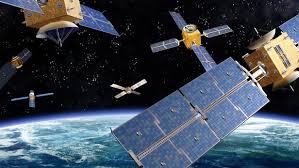
Breaking News
 LIVE ELECTION RESULTS: New York mayor, NJ & VA governor, Prop 50, Trump endorsements, latest vote
LIVE ELECTION RESULTS: New York mayor, NJ & VA governor, Prop 50, Trump endorsements, latest vote
 Sen. Markwayne Mullin Reveals Schumer Held Secret BACKROOM MEETING...
Sen. Markwayne Mullin Reveals Schumer Held Secret BACKROOM MEETING...
 RIP NYC - Muslim Communist Zohran Mamdani Wins New York City Mayoral Race
RIP NYC - Muslim Communist Zohran Mamdani Wins New York City Mayoral Race
 Dramatic Footage Shows UPS Cargo Jet Crashing At Louisville Airport
Dramatic Footage Shows UPS Cargo Jet Crashing At Louisville Airport
Top Tech News
 Japan just injected artificial blood into a human. No blood type needed. No refrigeration.
Japan just injected artificial blood into a human. No blood type needed. No refrigeration.
 The 6 Best LLM Tools To Run Models Locally
The 6 Best LLM Tools To Run Models Locally
 Testing My First Sodium-Ion Solar Battery
Testing My First Sodium-Ion Solar Battery
 A man once paralyzed from the waist down now stands on his own, not with machines or wires,...
A man once paralyzed from the waist down now stands on his own, not with machines or wires,...
 Review: Thumb-sized thermal camera turns your phone into a smart tool
Review: Thumb-sized thermal camera turns your phone into a smart tool
 Army To Bring Nuclear Microreactors To Its Bases By 2028
Army To Bring Nuclear Microreactors To Its Bases By 2028
 Nissan Says It's On Track For Solid-State Batteries That Double EV Range By 2028
Nissan Says It's On Track For Solid-State Batteries That Double EV Range By 2028
 Carbon based computers that run on iron
Carbon based computers that run on iron
 Russia flies strategic cruise missile propelled by a nuclear engine
Russia flies strategic cruise missile propelled by a nuclear engine
 100% Free AC & Heat from SOLAR! Airspool Mini Split AC from Santan Solar | Unboxing & Install
100% Free AC & Heat from SOLAR! Airspool Mini Split AC from Santan Solar | Unboxing & Install
LinkSure is building a satellite network to provide global internet access for free

Now Chinese firm LinkSure Network has announced a system of satellites to be launched by 2026, which it wants to provide internet access across the globe, free of charge.
Called the LinkSure Swarm Constellation System, the network will be headed by the LinkSure-1 satellite launching in 2019. That will be followed by 10 more satellites by 2020, with a total of 272 satellites and data processing centers scheduled to be operational within the next eight years.
As with other proposed systems of this type – including one being tested by SpaceX – the idea is to relay internet connectivity from satellite to satellite, ultimately reaching areas that don't have the necessary ground infrastructure for high-speed web access. As long as your device can see a satellite, it'll be able to get online.
LinkSure has made its name as the developer of the Wi-Fi Master Key app, which is hugely popular in Asia for getting online securely while protecting user privacy. The team tasked with setting up the new satellite system includes members from the China Academy of Space (CASC).
According to the latest estimates, just over half of the world's population – around 4 billion people – have access to the internet.



